Iluara
So they have a world-spanning teleportation network, superior magical knowledge, stockpiles of unknown artifacts, control of what must be half the international messages in the world, and access to the ear of just about every leader on Calcerun...well, it sure is lucky they're the good guys. ... They are the good guys, right?
Direct descendants of the ancient Naia, the iluara are a race of elves intensely attuned to the arcane. They are skilled mages and keen researchers who have collectively accumulated a wealth of knowledge to rival just about any other group on Calcerun. Iluara can be found across the globe acting in a variety of roles such as advisers, researchers or providers of arcane services. The Iluara maintain a strict policy of neutrality, refusing to take sides in even the most black-and-white conflicts. There have been accusations made, however, that the Iluara are not above bending their policy of neutrality from time to time.
The word 'Iluara' is used to refer simultaneously to a race and a global, geopolitical organisation. In virtually every other case it would be folly to assume that a race and an organisation are one and the same, for there will always be individuals or groups of a race who do not belong to the organisation. Not so with the Iluara. The Iluarn people are united under a single umbrella to the extent that the race and the organisation are effectively synonymous. This organisation is potent enough that it rivals most nations in sheer strength, despite the relatively low Iluarn population. Although they do not hold any significant territory, the Iluara are generally treated as equivalent to a nation in geopolitical matters.
Table of Contents
Politics
To many Iluara politics are a distraction from what really matters, namely the study and perfection of magic. In the early days of their organisation it was indeed possible for politics to be largely unnecessary, but as the organisation has grown in scope to become a global power politics have become a necessity. Most Iluara, however, are quite happy to leave the diplomacy and politicking to those of their kin who are interested in it.
Government
The Iluarn style of government was designed for a very different organisation than the Iluara ended up actually being. Originally envisaged as a primarily academic grouping, the overseeing body was intended to be one of calm, measured debate towards a common goal. As the Iluara grew far beyond their beginnings certain modifications had to be made to allow them to still function, but many parts of their government remain inefficient.
Two groups run the Iluarn government. The first, and largest, is the Chamber of Enlightenment. The Chamber is responsible for the day-to-day running of the Iluarn government, with authority over forming and altering laws. Its membership grows in pace with the slowly-increasing Iluarn population, currently standing at 34 members, called Sitters. Sitters are elected every decade by the Iluarn population, with every adult who has completed their basic education having a vote. The Sitters elect one of their own, known as the Guide of Enlightenment, to oversee them. Each Guide may only serve two decade-long terms in their lifetime, and the current Guide, Carothir the Stern, is nearing the end of his second term.
As the Chamber's membership grew it became apparent that sometimes a smaller, more nimble body was needed for debates which needed quick resolution.
by EngKit
Archmage Elvaraniel the White, Warden of Nalunara
A Warden was appointed for each continent in the world, and they, along with the Guide of Enlightenment, form the Warden's Council. When Wardens die or step down from their post the Council appoints their replacement, in consultation with the Chamber. The Council is responsible for responding to crises, and for carrying out diplomatic and military efforts - again, in consultation with the Chamber.
Theoretically the Council is supposed to act only to carry out the will of the Chamber, but sometimes the divisions within the Chamber or the need for a rapid response allow for the Council to act unilaterally. Precisely where the line is drawn, and how much the Council heeds the Chamber's wishes, changes significantly from decade to decade. Currently the Council is in ascendant thanks to a particularly-popular selection of Wardens and the fear caused by Tarania's fall.
International Relations
Throughout their entire existence the Iluara have maintained a firm position of neutrality. They officially refuse to take sides in any conflict, be it diplomatic, economic or military. This neutrality has allowed them to establish Sanctums across the world, buildings under Iluara control and recognised as Iluarn territory.
Their claim to 'neutrality' is a transparent lie. Oh, they always have an excuse, but we are not fools. They stand with the Alliance, but only tentatively. We can persuade them away, and that will make the war go much easier. We lack the capability to strike at the Iluara directly, and I fear we might not survive the retribution such an assault might bring, so we must seek an alternative. We must identify what they want, procure it, and offer it to them. For all their pretensions of wisdom they're as mercenary as any other elf.
Individual Iluara are frequently sent to act as advisers to national rulers. These advisers are thoroughly-educated in history, politics and economics, and are a huge asset to any leader who will heed their advice. In the process, of course, the Iluara usually acquire further rights within those leaders' nations, such as more freedom in building their Sanctums or increased access to academies and archives.
Although the Iluara vigorously proclaim their neutrality, there have been claims that they do not always stick to the spirit of their ancient policy. For example, in Nalunara the Iluara seem to be much closer to the Grand Alliance than the Kwal Dominion. They provided the magical alert system along the Unbreakable Wall for a remarkably cheap price, and donated use of the Unity Chamber to the Alliance leadership in return for unspecified "services rendered". Whatever their true side in a conflict, the Iluara are careful to maintain plausible deniability in any interventions.
The Iluara have something of a rivalry with the Autumnal Tower. Although the Iluara are clearly larger in scope and power than the Tower, it infuriates the Iluara that the members of the Tower can actually rival them for magical skill and knowledge. The Chamber has once or twice pushed for some subtle action to be taken to hinder the Tower, but the Warden's Council has always blocked the efforts.
Military
Being of a more scholarly bent, and lacking significant numbers, the Iluara have little in the way of a traditional military. The closest they have are the Guardians, battlemages who are trained for all types of combat and who act in defence of Iluarn assets. Guardians operate in small teams and are extremely competent combatants. As well as being expert battlemages all Guardians are trained in some form of mundane combat, as well as various associated skills, and they train rigorously in small-unit tactics. Due to their limited numbers Guardian strike teams are usually based in the Onoubras or the Hub, where they can be rapidly deployed to any trouble-spot via the Iluarn teleportation network.
To compensate for the Guardians' limited numbers and to provide some active defence to their Sanctums, the Iluara utilise large numbers of combat-capable golems. Artificers are constantly working on improving existing golems and devising new models to better contend with the world's various threats. Golems are traditionally considered simplistic, stupid and easily out-manoeuvred, but Iluarn golems are able to understand complex instructions, carry out intricate tactics, and the newest models are even capable of a small degree of improvisation.
by Botos Vlad
The newest model of Iluarn golem
Economy
The Iluara are a rich organisation, thanks to a number of factors. Firstly, they are frequently contracted to perform magical services that few other groups in the world are capable of. These contracts are from nations as often as from individuals, allowing the Iluara to charge particularly high fees for their admittedly-excellent work. Secondly, and perhaps most well-known, is their teleportation network. The fees to use the network are usually exorbitant, but when speed is of the essence people (and nations) suddenly become willing to pay just about anything. Thirdly, the Iluara have recently established a message service that allows customers to send messages instantaneously from Sanctum to Sanctum. The prices for these messages are much lower than those for teleports, making them accessible to much larger swathes of the world's population. Lastly, the Iluara have steady supplies of income from various smaller endeavours, such as charging for access to their archives and experts.
Demographics
The drow are famously insular, yet rare individuals can still be found among surface communities. The kor are remarkably unified, yet at least one community is known to have broken away from the rest. But the iluara? They tell us they are all unified, all as one, and our records show that this has always been so. This seems...unlikely.
The iluara are a race of elves, long-lived and naturally magical. Of all the extant elf bloodlines the iluara are by far the closest to the ancient Naia.
The iluarn race and the Iluarn organisation are synonymous, for every iluara is considered an integral part of the organisation and no iluara are ever found outside the organisation's control. It seems tremendously unlikely that every single member of a race would chose to stay with the organisation, but no matter how unlikely it is it seems to be the case. All of the historical evidence (most of it provided by the Iluara) corroborates this. Rumours of iluara who have broken away from the collective are persistent, but no investigation has found any significant validity to the rumours.
The most well-known example of a supposedly-independent iluara was that of an elf calling herself Amaloth the Free, who proclaimed that she had escaped the control of the Iluara. She established a fortified manor in Esé-Nal, where for several years she spread propaganda slandering the Iluara. Her efforts were ended by an Iluarn strike team who assaulted the manor and slew Amaloth. They later reported that she was in fact not an iluara but one of the Nalae, disguising herself as an iluara to settle an irrational grudge she held against the Iluara.
As with all elf races iluarn birthrates are low, but their exceptionally long lives (even by the standards of elves) and lack of any significant conflict have allowed the Iluarn population to grow steadily over the centuries. Birth-rates of males and females are approximately equal, and most births are of a single child only. Siblings are rare, and twins rarer still, to the extend that there have only been two twin births in the last three hundred years. The Iluara, with their predilection for facts and reason, attach no special significance to twins.
Languages
The language primarily spoken by the Iluara is Iluarn, a variant of Elvish. Many words are the same, or at least very similar, in Elvish and Iluarn, but the grammar has diverged with time. Part of the standard education for all Iluara also includes fluency in both standard Elvish and Draconic, and Iluara on assignment for any length of time typically pick up at least some of the local language. The high intelligence and rapid-learning ability of iluara allows them to quickly and relatively easily assimilate new languages, particularly if they are related to or derived from Elvish.
Religion
The Iluara have no official religion, but there is a noticeable divide between the religious practices of individual iluara. One viewpoint, held by around 40% of the population, is that they should not worship any god. There are two primary reasons for this: one is the belief that they should focus on achieving all that they can on their own merit, without owing anything to any deity; and the other is the belief that the gods are in any case not worthy of worship, as demonstrated by events such as Abhiom's madness.
Other iluara disagree, and are quite happy to worship one or more deities to at least some extent, though even for these devotees religion tends not to be a major aspect of their lives. By far the most common god for iluara to worship is Boccob, God of Magic and Knowledge. Some few choose to worship Wee Jas, Goddess of Law, Magic and the Grave, but her emphasis on learning from the past and keeping to established knowledge is at odds with the Iluarn tendency to look forward and seek new discoveries. Other gods that are often worshipped by iluara include Erathis, Goddess of Civilisation and Invention; Istus, Goddess of Fate and Destiny; and Moradin, God of Creation.
Education
All Iluara are enrolled in a compulsory education program from ages five through to twenty. This standardised program covers a broad range of topics including mathematics, geography, history, politics and, of course, magical theory. As part of this program all Iluara are also taught to use magic to a basic level of competency. The naturally-high intelligence of iluara allows them to progress rapidly through the course material, learning more in their fifteen years of education than people from most other races would be able to.
Following the completion of their standardised course, freshly-graduated Iluara are expected to continue their studies with a more narrow focus. The exact form these studies takes depends heavily on the chosen focus. Some disciplines, such as history, tend to be studied in the manner of a typical university course. Others, such as artificing, are usually learnt via a more traditional master/apprentice arrangement.
Many Iluara end up studying multiple disciplines over the course of their long lives, becoming skilled and informed in a wide variety of fields. Others prefer to specialise, keeping only to their preferred discipline and perhaps one or two others that are closely associated. These individuals end up becoming true experts in their field or grand-masters of their craft.
Culture
On the whole the Iluarn culture is one of respect, study, and rational thought. They prize knowledge, discovery and innovation, and consider themselves both more intelligent and more wise than other races. Some of their greatest folk-heroes are those who overcame their trials through cunning and ingenuity. The darker side to this is that many Iluara consider themselves outright superior to other races.
The Onoubras, before the scar from Zezrokon the Felclaw's attack was repaired
The Iluara treat males and females equally, seeing little distinction between them (a cultural trait encouraged by the fact that male and female iluara look very much alike, with little in the way of sexual dimorphism). Family bonds are not particularly important to the Iluara. They typically maintain at least some connection to their family, but otherwise see nothing particularly special about the bond between family members compared to the bonds between friends or masters & apprentices.
The dominant Iluarn philosophy encourages each Iluara to work as they see fit, individually or in groups, with the understanding that ultimately they are all working towards the betterment of the Iluarn race. This might seem a vague directive, but to the Iluara anything that deepens understanding, generates knowledge, or creates something new would be considered bettering the Iluara. This most of the activities Iluara are naturally inclined towards are considered beneficial. In times of necessity the Chamber or Council might impose more direct instructions, but generally they are content to gently guide their people towards the common good.
When it comes to naming habits, the Iluara traditionally have two names. One may be shared with anyone, while the other is shared only with other Ilaura. Consequently those Iluara who are internationally-active or globally-recognised often run into the issue that their names are not distinctive enough, or can be confused with other famous Iluara. To differentiate them such prominent individuals thus have a tendency to adopt, or be given, titles such as the White, the Artificer, or the North Wind.
To denote rank, accomplishments, or mastery in a certain discipline, the Iluara use a wide variety of signet rings. Most are mundane, though some (such as the one granted upon attaining the rank of Magus) are enchanted. Although most Iluara wear their rings on display on their fingers, those working in more practical pursuits frequently opt to instead wear them on a chain around their neck. Other, less common, means of display include threading the rings onto wands or braids of hair. One particularly eccentric archmagus has enchanted his many rings to all float around his head in a display perhaps best described as "silly-looking".
Architecture & Design
Iluarn design preferences tend towards gently-sweeping curves and graceful, tall structures. They build almost exclusively with a distinctive stone of pale yellow/orange which is remarkably strong and durable. The source of this stone is unknown to the wider world, but it is suspected to be from another plane. Their buildings and rooms are usually heavily decorated with inlays of metal in intricate curving patterns reminiscent of magical runes.
Assets
See also 'Notable Locations' and 'Notable Artifacts' in the sidebar.Sanctums
In cities across the world can be found Iluarn Sanctums, moderately-sized buildings built by the Iluara and considered their territory. These Sanctums provide access to the Iluara for their magical expertise, as well as playing host to the local teleportation circle and message centre. Sanctums are usually lightly-manned, but extra manpower or reinforcements can be rapidly deployed to them via the teleportation network.
Teleportation Network
The most well-known Iluarn asset is their global teleportation network. The network originally grew in an organic (and hence disorganized) way as the Iluara rose in power and influence, but it recently underwent a drastic re-organisation at the hands of Dorandor the Artificer. Teleportation circles in Sanctums across the world are linked into a cohesive network centred in the Ennahtad, and any journey now requires only a few jumps at most. The Iluara charge huge sums for access to their network, and jealously guard the secrets of its manufacture.
Knowledge
The Iluara have a vast amount of knowledge at their disposal. Their primary focus is of course magical research, but they have also accumulated tremendous amounts of information on just about every other potential topic of study. All of this is stored in archives and libraries, most of them in the Onoubras, with the Blue Library being by far the largest. Quite possibly the largest repository of knowledge in the world, the Blue Library is located in a dimensionally-expanded space deep within the Onoubras. There are smaller and more specialised archives within the tower as well, but the Blue Library will generally be any knowledge-seeker's first destination.
by Kaitan
A small section of the Blue Library
The Obskura Archives
Also located in the Onoubras, the Obskura Archives are specialised in ancient history. This is one of the areas of study the Iluara generally have the least regard for, as they prefer to make their own discoveries rather than learn from the past, but not all Iluara agree. The Archives host the majority of the Iluarn knowledge of the world's history, including scrolls, tablets and books from ancient civilisations, as well as various archaeological relics. The Archives are also home to an assortment strange magical items, recovered from past ages, which are in some way unique or strange when compared to modern enchantments. The most dangerous of these are stored in the Extremis Vault deep within the Archives, where they are said to be held ready for use against some cataclysmic event.
History
Formation
The group of Naia who would eventually become the Iluara lived in a city on the far edge of Naian territory. When the Naian Cataclysm hit its mutative effects were lessened by the time it reached this group, and they were the least altered of all the Naia. The survivors were determined to restore their greatness, but to learn from the mistakes of those who had caused the Cataclysm. They called themselves Iluara, meaning "enlightened ones" in Naian. Their home was too badly damaged by the Cataclysm for them to remain, so they set out in search of a new home. They discovered the Obdurate Anchor hovering unattended above the sea, its previous owners presumably destroyed by the Cataclysm. The Iluara began construction of a great tower atop the Anchor. This tower they called the Onoubras.
Expansion
Once the Onoubras was finished the fledgling Iluara society had a home to call their own, and the security it provided. They established the beginnings of the traditions and lifestyle that are still present today, and began their work to reclaim their birthright as descendants of the Naia. As part of this they sent parties of explorers and researches out across the world to assess its state in the aftermath of the Cataclysm.
It was a very clever strategy, showing great foresight. By getting in early, while the nations were just beginning to establish themselves, the Iluara were able to grow alongside them. They had been there from the beginning, after all, so their continued presence seemed only natural.
During this period of exploration the Iluara became increasingly horrified with the damage wrought by the Naia, and their cultural focus moved away from reclaiming the past. Instead they would forge their own, better path through life. As part of this they aimed to be more diplomatic than the Naia had been, and established friendly relationships with the new nations they encountered.
It was around this time that the Iluara developed their skill with teleportation to enable them to better maintain connections with their disparate agents.
Consolidation
As the world began to stabilise, the Iluara made sure to be involved as much as possible in the world. They established their reputation as great mages and enchanters, and began the construction of their Sanctums in friendly nations. Gradually but inexorably the Iluara became a global power, with ties in almost every nation. The Iluara have made no effort to take things any further than that, but it is not a secret that their power has continued to grow ever more fearsome. Some worry about what might happen should the Iluara ever decide to take a more active role in the future of Calcerun.
The Iluara
Itrewic vae de Irthir
(From knowledge, wisdom)
(From knowledge, wisdom)
Notable Locations
The Onoubras - a great stone tower hovering just above the ocean, the Onoubras is the home and capital of the Iluara. Dimensionally-expanded to be much larger inside than outside, the Onoubras holds vast numbers of living quarters, research laboratories, libraries, vaults, and other facilities.
The Onoubras - a great stone tower hovering just above the ocean, the Onoubras is the home and capital of the Iluara. Dimensionally-expanded to be much larger inside than outside, the Onoubras holds vast numbers of living quarters, research laboratories, libraries, vaults, and other facilities.
The Ennahtad - more commonly known as the Hub, the Ennahtad is a vast flying structure created recently by Dorandor the Artficer. Safe high in the sky and constantly moving it acts as the central locus for the Iluarn teleportation network, as well as a fallback stronghold should something befall the Onoubras.
Notable Items
The Obdurate Anchor - an ancient artifact of uncertain origin, the Obdurate Anchor is an utterly immovable object that lies at the heart of the Onoubras and allows the entire tower to hover in mid-air.
The Obdurate Anchor - an ancient artifact of uncertain origin, the Obdurate Anchor is an utterly immovable object that lies at the heart of the Onoubras and allows the entire tower to hover in mid-air.
Dorandor's Anchor - an improved version of the Obdurate Anchor, created recently by Dorandor the Artificer. It can be moved only by the command of its operator, and is otherwise as immovable as the Obdurate Anchor it was patterned on. Dorandor's Anchor currently supports the Ennahtad.
Fineli's Gift - created by the last surviving Naian archmage following the Cataclysm, this staff is an incredibly powerful magical object. Despite its great age it is the equal of any modern enchantment the Iluara have been able to create. The staff serves as a mark of office for the Guide of Enlightenment (see Government).
Other artifacts - The Iluara are known to have a vast collection of enchanted items, both old and new, and there is good evidence that they possess more true artifacts than they publicly admit to. The nature of such artifacts, if they even exist, is unknown.
Notable Individuals
Carothir the Stern - the current Guide of Enlightenment (see Government), Carothir is respected by the main Iluarn political factions for his political neutrality and his even-handed (if perhaps overly-strict) control over conduct within the Chamber of Enlightenment. Only a year remains before Carothir's permitted time as Guide expires, and already political factions are manoeuvring to determine his replacement.
Carothir the Stern - the current Guide of Enlightenment (see Government), Carothir is respected by the main Iluarn political factions for his political neutrality and his even-handed (if perhaps overly-strict) control over conduct within the Chamber of Enlightenment. Only a year remains before Carothir's permitted time as Guide expires, and already political factions are manoeuvring to determine his replacement.
Dorandor the Artficer - a leading expert on magical items, Dorandor is known across the world as the man who oversaw the first creation of a new artifact in modern times. He also oversaw the construction of the Ennahtad and the improvement of the Iluarn teleportation network. His current activities are a highly-classified secret.
Elvaraniel the White - the Warden of Nalunara, Elvaraniel is one of the most competent Iluarn battle-mages. In her youth she vanished for over a decade before returning with strange magical items and vastly-improved powers, but she consistently refuses to discuss what happened during her disappearance.
Remove these ads. Join the Worldbuilders Guild
Cover image:
by
Joe Hikawa


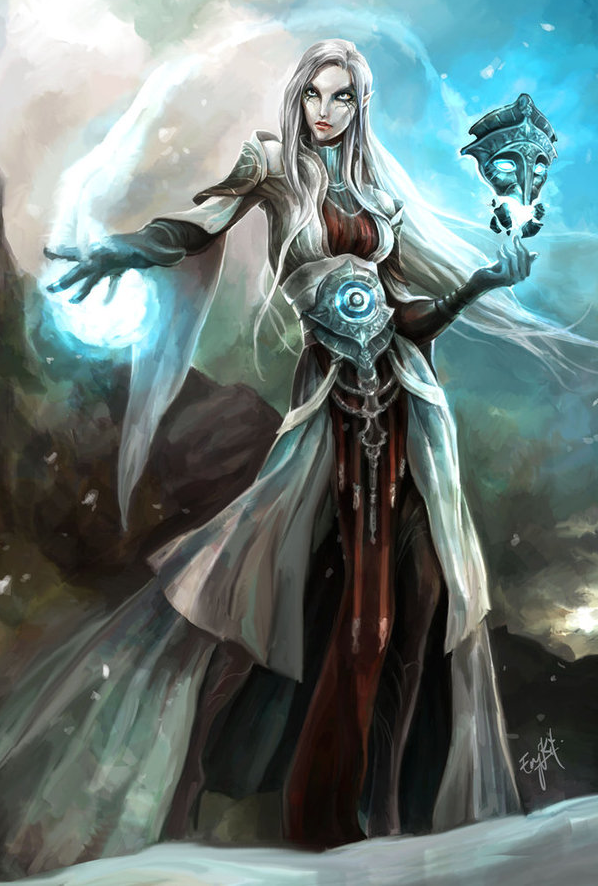
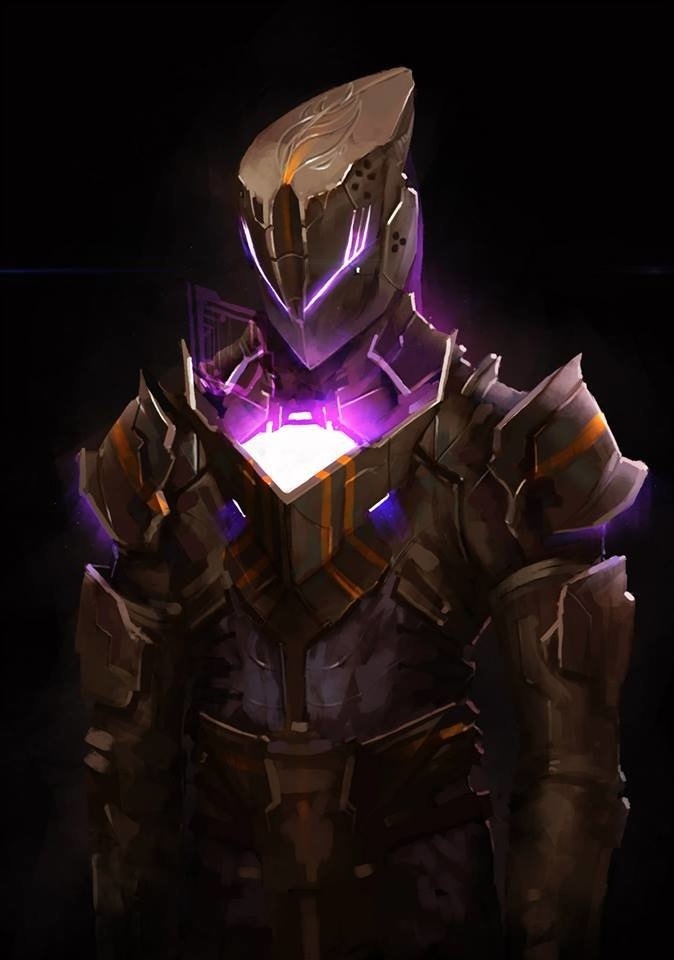
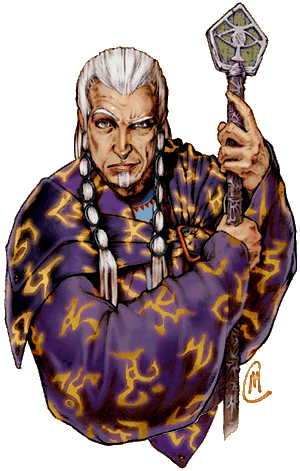
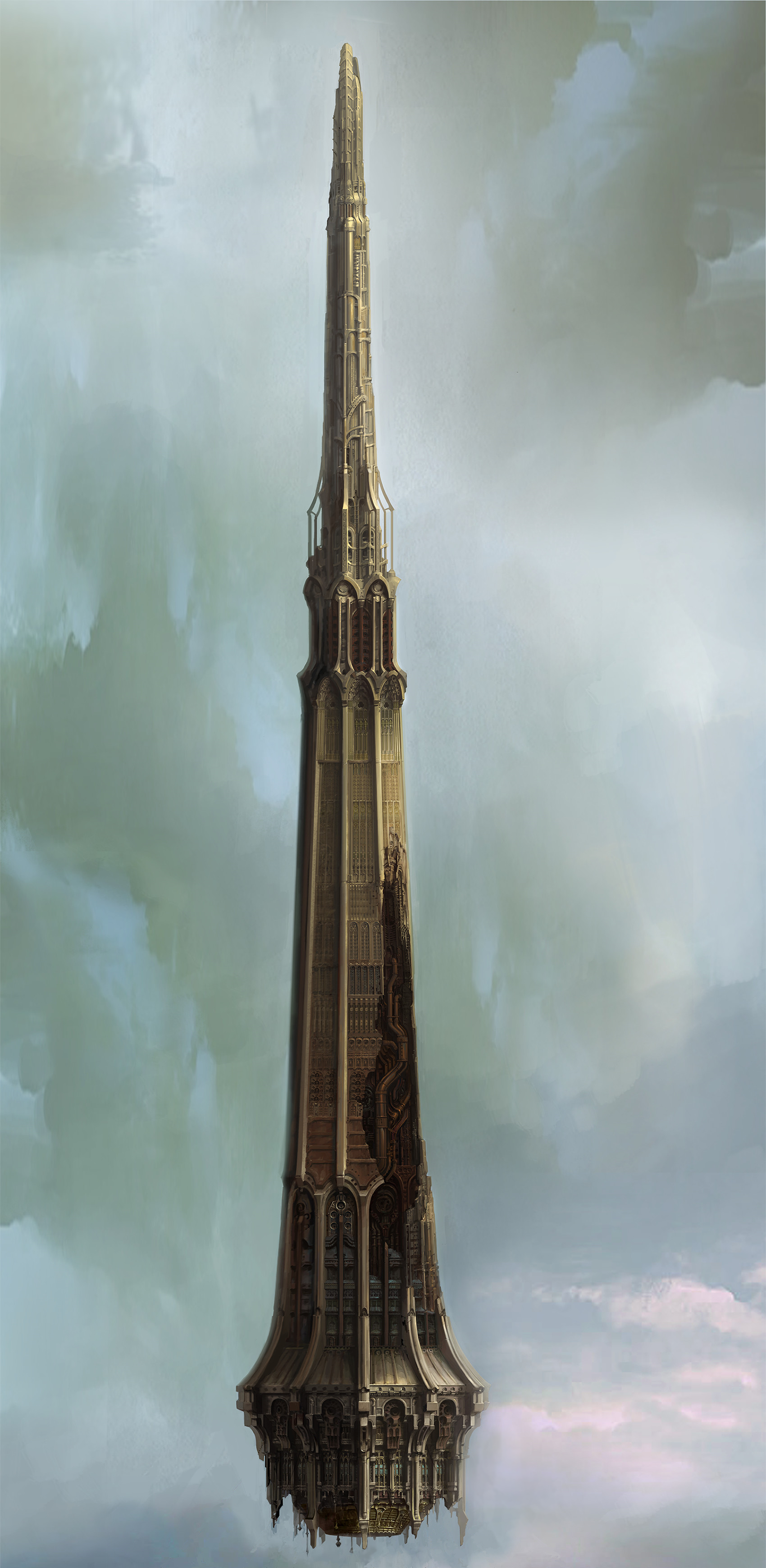
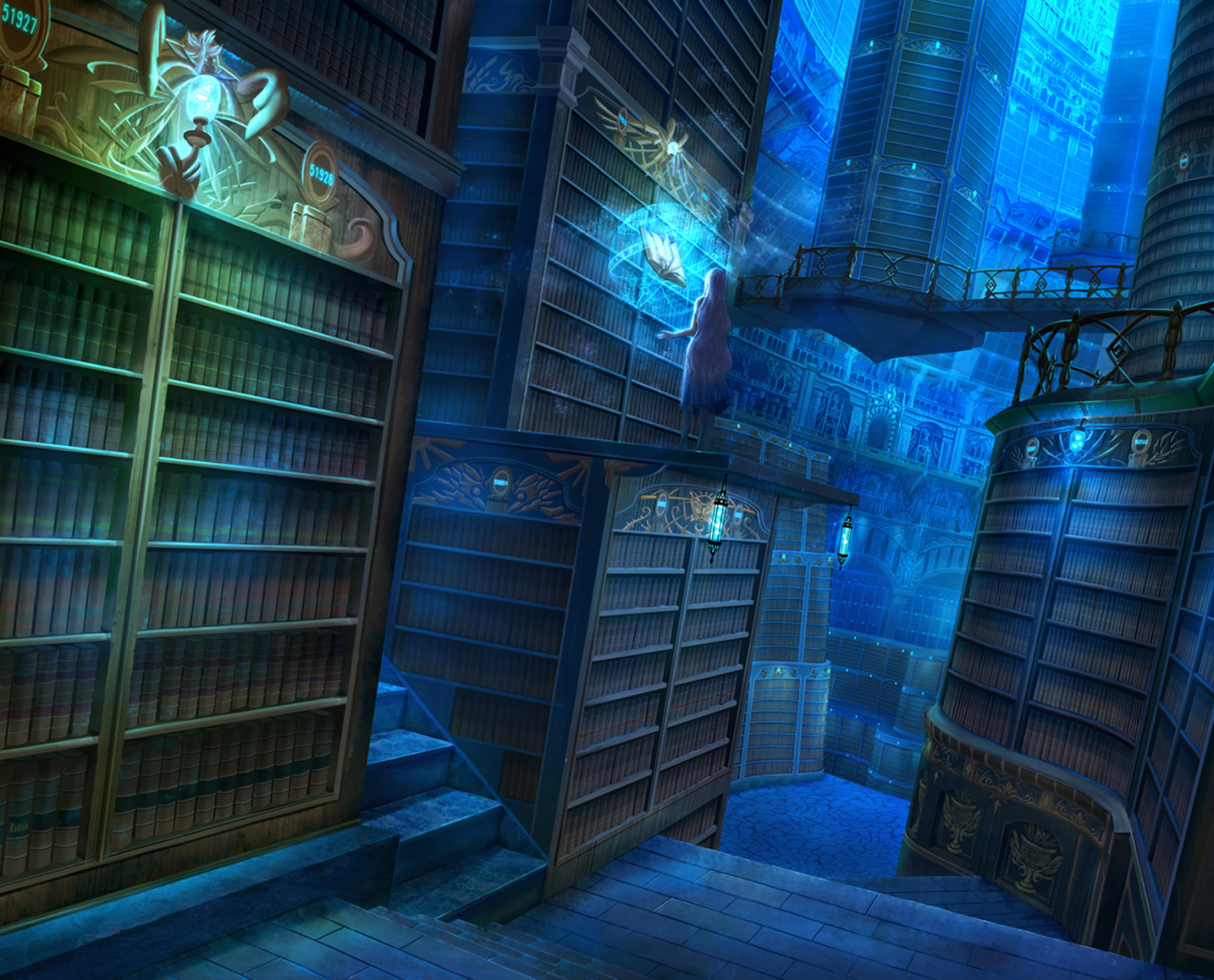
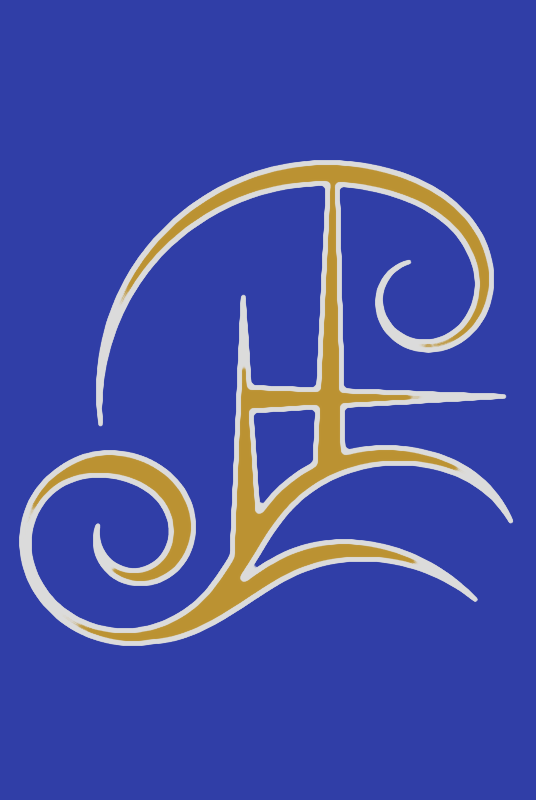







Wow this is so in depth! Great layout and enjoyable read :D I want to explore some more of your world now!